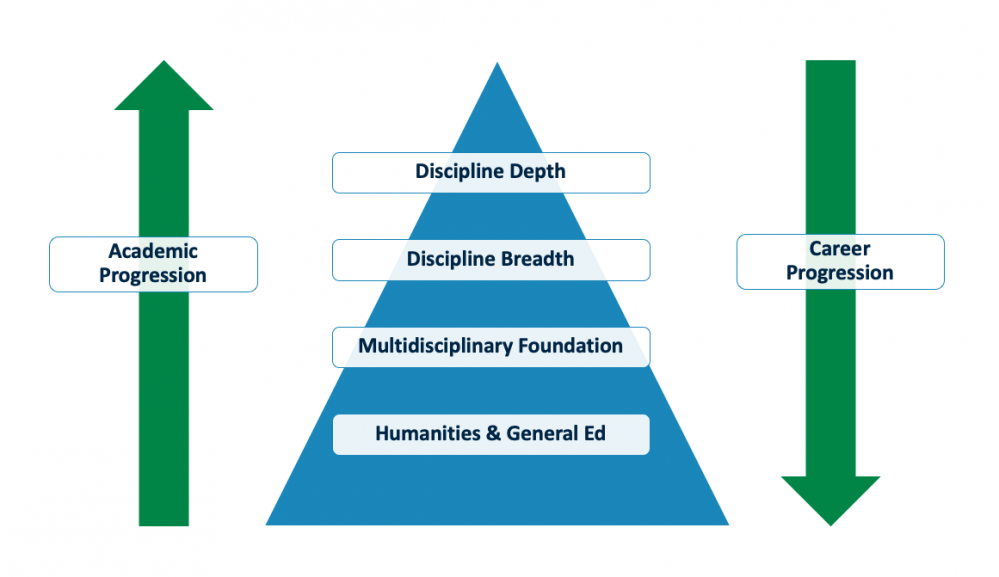When starting, we complete the humanities and general education courses before we can take the multidisciplinary foundation classes. These include higher levels of math and physics, structures or thermodynamics, or other generalized fields like computer science. Finally, you enroll in courses that pertain to your discipline breadth classes, which are related to your field of study, such as mechanical engineering or economics. These classes typically start in the junior year. In the senior year or sometimes when pursuing a masters, the discipline depth classes are available, allowing extensive study into the field of interest and the nuances therein.
When I started my academic career, I went through the course catalog and saw the discipline depth classes. I thought they were fascinating and spent most of my time figuring out how to get there as soon as possible. But first, I had to check off the boxes in the first two levels. This is the academic progression arrow you see in the above image.
After graduation, I started my first job at NASA. In the early years, my job related somewhat to my discipline depth courses, which provided the foundation to perform my job. Once I was in a more senior role, then my discipline breadth classes were more applicable. When I was promoted to management, I used what I learned in my multidisciplinary foundations courses. Ultimately, as my career progressed into more executive positions, it seemed I relied more and more on my humanities and general education classes.
Interestingly, I’ve spent the majority of my career in management and executive-level positions that relied on the first year or two of college, which I desperately tried to rush through to get to my discipline courses. I loved those classes and still enjoy thinking about them, but truthfully, I haven’t used the material from those later classes in a long time. I’m not sure I would have lined up my priorities in school the same way if I completely understood the importance of the early classes and how they would be responsible for my success later in my career. I like to make this observation for people as they start their academic work. Don’t take short shrift of those early classes. Instead, build a pattern of success and realize that as your career progresses, you’re going to use a different set of skills.
Share this Post

